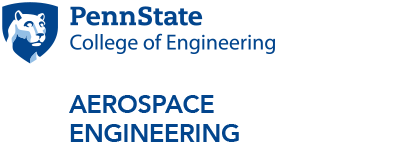Journal Articles
- Ashwin Renganathan, Vishwas Rao and Ionel M. Navon, 2023, "CAMERA: A method for cost-aware, adaptive, multifidelity, efficient reliability analysis", Journal of Computational Physics, 472, pp. 111698
- Annie S Booth, Ashwin Renganathan and Robert B Gramacy, 2023, "Contour Location for Reliability in Airfoil Simulation Experiments using Deep Gaussian Processes", Annals of Applied Statistics, 19, (1)
- Jai Ahuja, Ashwin Renganathan and Dimitri N. Mavris, 2022, "Sensitivity Analysis of the Over-Wing Nacelle Design Space", Journal of Aircraft, 59, (6), pp. 1--15
- G. Valerio Iungo, Romit Maulik, Ashwin Renganathan and Stefano Letizia, 2022, "Machine-learning identification of the variability of mean velocity and turbulence intensity for wakes generated by onshore wind turbines: Cluster analysis of wind LiDAR measurements", Journal of Renewable and Sustainable Energy, 14, (2)
- Ashwin Renganathan, Romit Maulik, Stefano Letizia and Giacomo Valerio Iungo, 2022, "Data-driven wind turbine wake modeling via probabilistic machine learning", Neural Computing and Applications, 34, pp. 6171-6186
- Ashwin Renganathan, Romit Maulik and Jai Ahuja, 2021, "Enhanced data efficiency using deep neural networks and Gaussian processes for aerodynamic design optimization", Aerospace Science and Technology, 111
- Dushhyanth Rajaram, Tejas G Puranik, Ashwin Renganathan, WoongJe Sung, Olivia Pinon Fischer, Dimitri N Mavris and Arun Ramamurthy, 2020, "Empirical assessment of deep Gaussian process surrogate models for engineering problems", Journal of Aircraft, 58, (1), pp. 182--196
- Ashwin Renganathan, Kohei Harada and Dimitri N. Mavris, 2020, "Aerodynamic Data Fusion Toward the Digital Twin Paradigm", AIAA Journal, 58, (9), pp. 3902-3918
- Ashwin Renganathan, Romit Maulik and Vishwas Rao, 2020, "Machine learning for nonintrusive model order reduction of the parametric inviscid transonic flow past an airfoil", Physics of Fluids, 32, pp. 047110
- Ashwin Renganathan, 2020, "Koopman-based approach to nonintrusive reduced order modeling: Application to aerodynamic shape optimization and uncertainty propagation", AIAA Journal, 58, (5), pp. 2221--2235
- Ashwin Renganathan, Yingjie Liu and Dimitri N Mavris, 2018, "Koopman-based approach to nonintrusive projection-based reduced-order modeling with black-box high-fidelity models", AIAA Journal, 56, (10), pp. 4087--4111
Conference Proceedings
- Pramudita S Palar and Ashwin Renganathan, 2024, "Reliability-oriented Sensitivity Analysis using Shapley Additive Explanations and Polynomial Chaos Expansion", AIAA SciTech Forum 2024
- Annie S Booth, Robert Gramacy and Ashwin Renganathan, 2024, "Actively learning deep Gaussian process models for failure contour and probability estimation", AIAA SciTech Forum 2024
- Ashwin Renganathan, 2024, "Efficient reliability analysis with multifidelity Gaussian processes and normalizing flows", AIAA SciTech Forum 2024
- Daning Huang, Ashwin Renganathan and Mark Miller, 2023, "Design of an Aeroelastically Scaled Model in a Compressible Air Wind Tunnel Facility Using Multifidelity Multi-Objective Bayesian Optimization", AIAA SciTech Forum 2023
- Ashwin Renganathan and Kade Carlson, 2023, "qPOTS: Efficient batch multiobjective Bayesian optimization via Pareto optimal Thompson sampling", International Conference on Artificial Intelligence and Statistics
- Ashwin Renganathan, Vishwas Rao and Ionel Navon, 2022, "Multifidelity Gaussian processes for failure boundary and probability estimation", AIAA SciTech Forum 2022, AIAA, pp. 0390
- Dushhyanth Rajaram, Tejas G. Puranik, Ashwin Renganathan, Woong Je Sung, Olivia J. Pinon-Fischer, Dimitri N. Mavris and Arun Ramamurthy, 2020, "Deep Gaussian Process Enabled Surrogate Models for Aerodynamic Flows", AIAA SciTech Forum 2020, pp. 1640
- Ashwin Renganathan, Kohei Harada and Dimitri N. Mavris, 2019, "Multifidelity Data Fusion via Bayesian Inference", AIAA Aviation Forum 2019, pp. 3556
- Jai Ahuja, Ashwin Renganathan, Steven Berguin and Dimitri N Mavris, 2018, "Multidisciplinary analysis of aerodynamics-propulsion coupling for the OWN concept", AIAA SciTech Forum 2018, pp. 2927
- Ashwin Renganathan, Steven H. Berguin, Mengzhen Chen, Jai Ahuja, Jimmy C. Tai, Dimitri N. Mavris and David Hills, 2018, "Sensitivity Analysis of Aero-Propulsive Coupling for Over-Wing-Nacelle Concepts", AIAA SciTech Forum 2018
Other
- Ashwin Renganathan, 2018, "A Methodology for Non-Intrusive projection-based model reduction of expensive black-box PDE-based systems and application in the many-query context"

